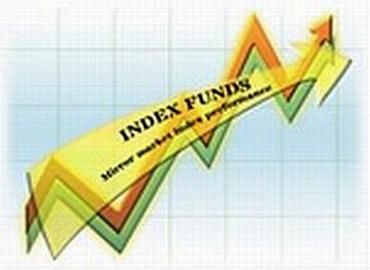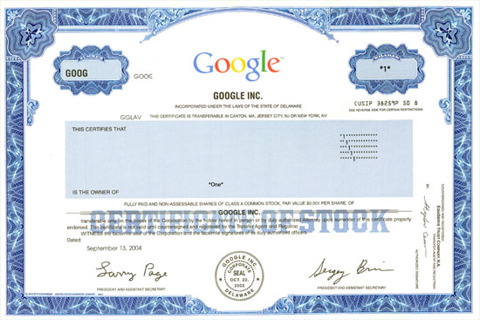I want to give you the financial tools and savings advice to help you achieve financial success
Monday, November 15, 2010
Stock Investing Pt. 2 Do your homework
The most important step before putting your money on the line in an investment is to know what you are investing in. This is important in every investment from real estate, to stocks. What the research is called is due diligence, and this is looking at the available information about your investment. Luckily with stocks the SEC (Securities and Exchange Commission) require public companies (companies with stock listed on an exchange) to publish information about their business. The SEC was created after the great depression to protect us the little investors. Some of the more prominent and useful peaces of information are the balance sheet, income statement and statement of cash flow. The balance sheet is made up of assets (all the items that the business own, what they owe to other people, and what the owners or stock holders have). The income statement shows revenues and expenses and whether the business is profitable or not. And the cash flow statement shows where the cash in the business came from or was spent, there are three categories, operating cash flows, investing cash flows, and financing cash flows. You can find these http://www.sec.gov/edgar.shtml or a site like www.finance.yahoo.com. The SEC site will have the most in depth information look at the 10-k (annual reports) and 10-q (quarterly report).The other sites will also have the same information available, but also some other useful tools available to you.
Thursday, November 11, 2010
Multiple Streams of Income
Today I wanted to give you a break from the investing series and help explain another tool to show you a way to give your financial standings a liftoff. How do I make my financial security and success better? Multiple streams of income. It seems pretty intuitive doesn't it? Well most people have one stream of income there whole life. When you are working in your career you rely on the stream of paychecks, but what if you can't work or the company goes out of business, where did your stream of income go? Or what if your retirement savings is eaten away by inflation or a recession of today's proportions pummels the values of your retirement savings. You need to develop yourself something to fall back on. There are many different opportunities out there to develop a stream of income outside of your work. Maybe you could purchase an interest in someone elses small business. Or possibly you could purchase a rental house. But don't they require alot of upkeep? There is even a solution for that hire a management company to take care of the house and pay them a management fee and keep everything else. Ebay has created a great platform to turn you hobby into an alternative cash flow. When everything else fails, wouldn't it be nice to be able sleep well at night when the downsizing starts at your company, because you know you will still be able to pay the mortgage on your house.
Wednesday, November 10, 2010
Stock investing the simple way
 There are many different ways to invest your money before you become comfortable with investing in individual stocks or if you do not have the time to devote to researching your investments. I'm sure that you have heard of the Dow Jones before. Well it is an index of thirty different stocks some of these companies include Intel, Wal-mart, and Bank of America. Personally I would recommend something called the S&P 500. The S&P 500 is compiled by a company called Standard and Poors, and the index contains the 500 largest companies on the New York Stock Exchange (NYSE) and NASDAQ (a different exchange). With the S&P 500 you become extremely well diversified with names from Sam Adams Beer to Apple to GE. Many times fund managers use the S&P as a benchmark to see how their fund is performing. Another reason to use indexes instead of actively managed funds is because often times fund managers do not beat the S&P. So if you want to put your investments on cruise control index it.
There are many different ways to invest your money before you become comfortable with investing in individual stocks or if you do not have the time to devote to researching your investments. I'm sure that you have heard of the Dow Jones before. Well it is an index of thirty different stocks some of these companies include Intel, Wal-mart, and Bank of America. Personally I would recommend something called the S&P 500. The S&P 500 is compiled by a company called Standard and Poors, and the index contains the 500 largest companies on the New York Stock Exchange (NYSE) and NASDAQ (a different exchange). With the S&P 500 you become extremely well diversified with names from Sam Adams Beer to Apple to GE. Many times fund managers use the S&P as a benchmark to see how their fund is performing. Another reason to use indexes instead of actively managed funds is because often times fund managers do not beat the S&P. So if you want to put your investments on cruise control index it.
Thursday, November 4, 2010
Stock Investing Pt. 1 How does it work?
Now that I have impressed on you the importance of saving your money earlier I now want to have a multiple different ideas of stock investing. As I have stated in previous posts that stock investing is one of the greatest generators of wealth, I want to teach you to wield that power on your own. Plus often times I receive many questions from people about stock investing. So here we go.
 |
| Share of Google Stock |
What is a Stock?
Stock is a partial ownership in a company. As a shareholder (stockholder) you provide capital to the business in return for a share of the profits. For instance if there are 100 shares of ABC Inc. and you own 1 you have 1% of the company.
First thing to do when starting investing is finding a broker. A broker is the person that goes to the stock market and completes the deal on your behalf. I suggest Sharebuilder, they don't have any account minimums and have very small commissions with their automatic investing option.
 |
| What the specialist sees and matches the buyer and Seller |
The way the market works is through matching buyers and sellers. Lets say for instance you want to Buy 100 Shares of GE you would go to the broker and in turn they would contact the stock exchange and a specialist would match your bid with the closest asking price. When there are more bidders than people asking (selling) the price goes up. When there are more people selling than buying the price goes down.
Tuesday, November 2, 2010
The Effects of Time on money
Let's assume you save $1 day. Can you save a $1? Realistically yes you can easily, but lets even say that every dollar of your income is spoken for. I would be willing to bet that if you look hard enough you can find 100 pennies or one dollar worth of change on the ground, it may take lots of searching but you will be able to find it. So lets assume you can save a dollar a day and get a return of 8% with 365 days a year and forty years you would have $102,120. $87,520 would be interest you would have only contributed approximately $14,000. Now if you wait five years to start your savings will only 67,927 that's almost half of what someone who started five years earlier than you. you would have about $12,000 of your contributions, and $55,152 of interest.
Subscribe to:
Posts (Atom)


